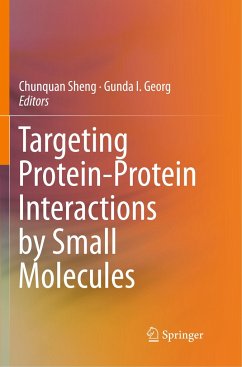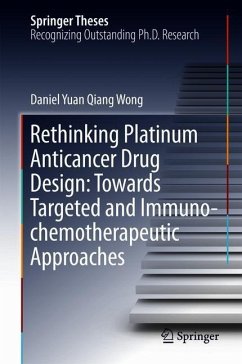
Targeting Protein-Protein Interactions by Small Molecules

PAYBACK Punkte
53 °P sammeln!
This book comprehensively reviews the state-of-the-art strategies developed for protein-protein interaction (PPI) inhibitors, and highlights the success stories in new drug discovery and development. Consisting of two parts with twelve chapters, it demonstrates the design strategies and case studies of small molecule PPI inhibitors. The first part discusses various discovery strategies for small molecule PPI inhibitors, such as high throughput screening, hot spot-based design, computational approaches, and fragment-based design. The second part presents recent advances in small molecule inhibi...
This book comprehensively reviews the state-of-the-art strategies developed for protein-protein interaction (PPI) inhibitors, and highlights the success stories in new drug discovery and development. Consisting of two parts with twelve chapters, it demonstrates the design strategies and case studies of small molecule PPI inhibitors. The first part discusses various discovery strategies for small molecule PPI inhibitors, such as high throughput screening, hot spot-based design, computational approaches, and fragment-based design. The second part presents recent advances in small molecule inhibitors, focusing on clinical candidates and new PPI targets. This book has broad appeal and is of significant interest to the pharmaceutical science and medicinal chemistry communities.












